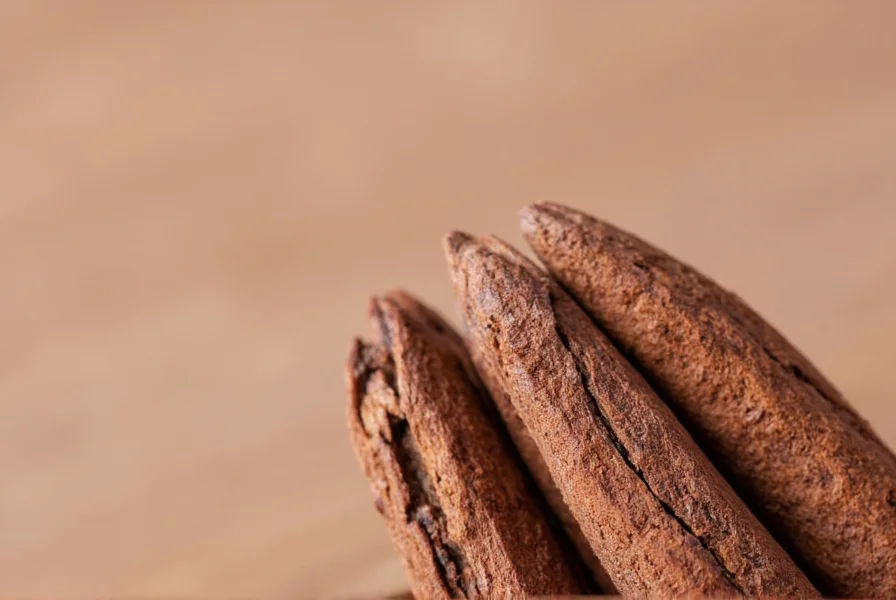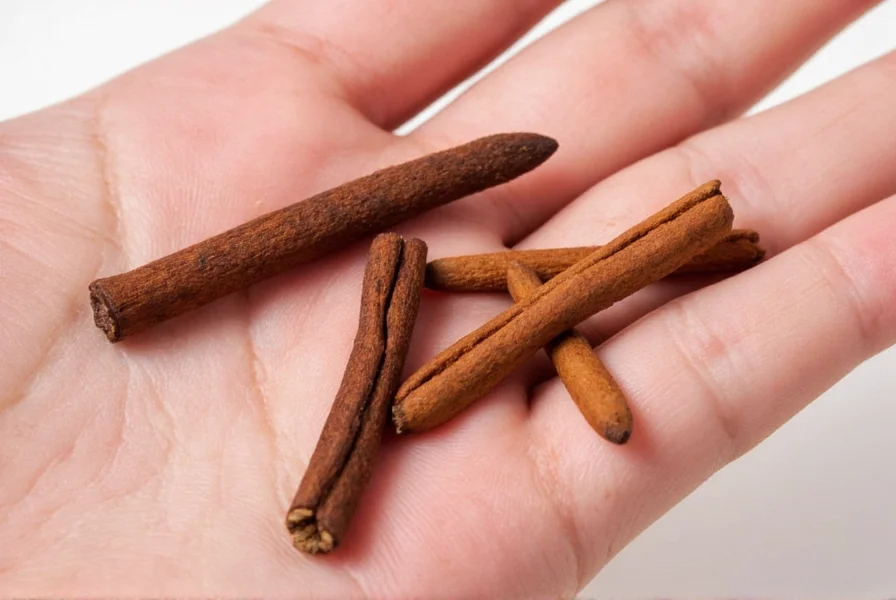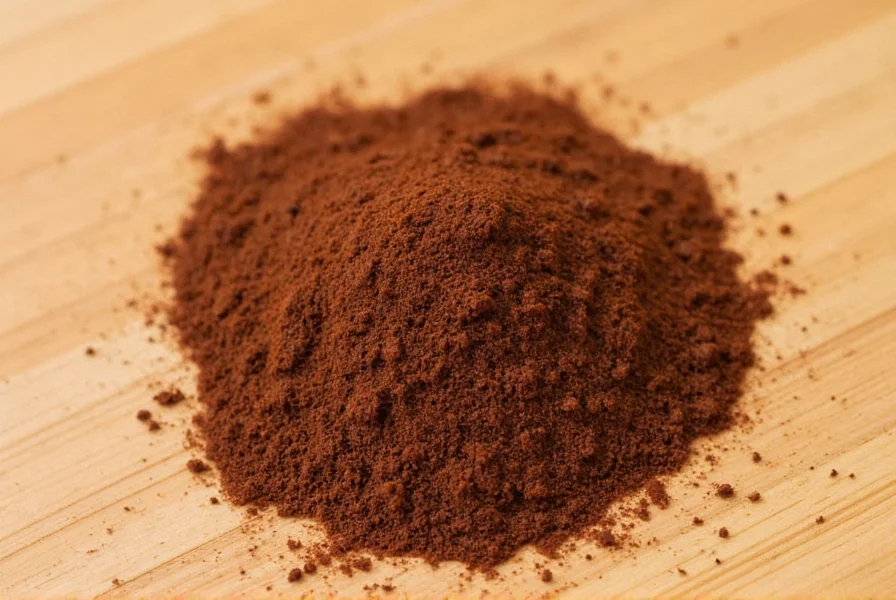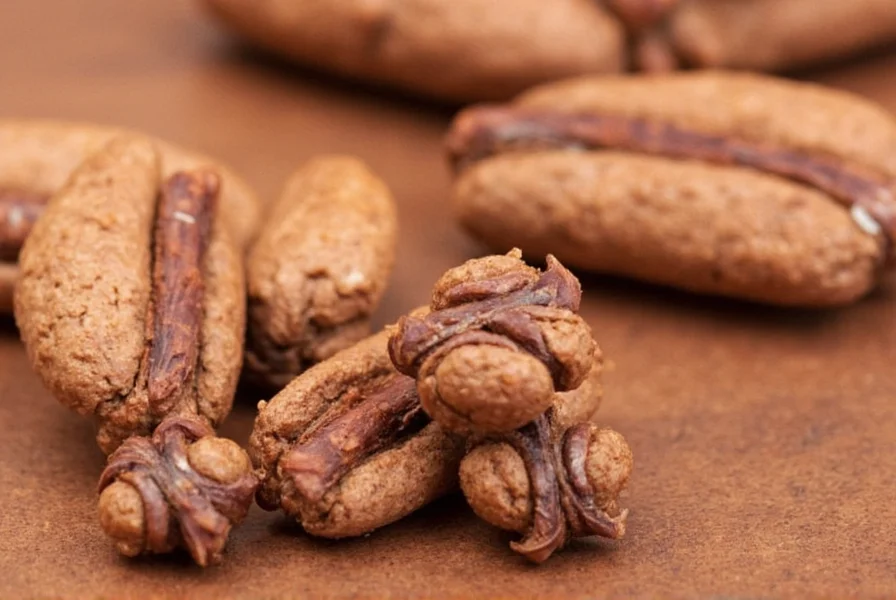Table of Contents
What Is Clove Flavor?
Clove flavor comes from dried flower buds of the Syzygium aromaticum tree. It's characterized by warm, sweet, and slightly bitter notes with spicy-woody aroma, primarily from the compound eugenol. This potent spice is used globally in cooking, baking, and traditional remedies.
| Flavor Note | Description |
|---|---|
| Warmth | Reminiscent of fireplaces and winter evenings |
| Sweetness | Natural sugar notes without actual sugar |
| Bitterness | Subtle edge that balances sweetness |
| Aroma | Strong, woody, and almost medicinal |

How to Use Clove in Cooking
Cloves are potent—start with small amounts. Here's how to use them:
- Whole Cloves: Infuse in liquids (soups, mulled wine), roast meats, or create festive pomanders. Remove before serving.
- Ground Cloves: Perfect for baked goods, spice blends, and rubs. Use 1/8-1/4 tsp per serving.
- Clove Oil: For topical use only (not ingestion). Dilute before applying to skin.
| Type | Pros | Cons | Best For |
|---|---|---|---|
| Whole Cloves | Fresher longer, easy to remove after use | Need grinding if used in bakes | Infusing liquids, roasting meats, festive decor |
| Ground Cloves | Instant flavor, no prep work | Loses potency faster | Baking, spice mixes, rubs |
Best Clove Pairings
Cloves complement these ingredients:
- Cinnamon
- Nutmeg
- Allspice
- Orange peel
- Vanilla extract
History of Cloves
Cloves originated in Indonesia's Maluku Islands. They sparked global trade wars in the 16th century and were once worth their weight in gold. Today, major producers include Madagascar, Zanzibar, and Sri Lanka.
5 Clove Fun Facts
- Cloves were used as currency in ancient Indonesia
- They contain antimicrobial properties that fight bad breath
- Indonesian "kretek" cigarettes are made with cloves
- One clove can flavor an entire pot of stew
- Clove oil is used in dental care for temporary toothache relief
Clove FAQs
What does clove taste like?
Cloves have a warm, sweet, and slightly bitter flavor with spicy-woody notes. The dominant compound eugenol creates a distinctive taste similar to a campfire marshmallow dipped in cinnamon. Use sparingly—1/8 to 1/4 tsp ground cloves per serving is typically sufficient.
Can I substitute ground cloves for whole cloves?
Yes, but with caution. 1/4 tsp ground cloves equals about 6 whole cloves. Whole cloves release flavor slowly and can be removed after cooking, while ground cloves disperse throughout dishes. Always follow recipe specifications for best results.
Are cloves the same as allspice?
No. Allspice tastes like a blend of cinnamon, nutmeg, and cloves, but it's a distinct spice from the Pimenta dioica tree. Cloves have a sharper, more intense flavor and cannot be directly substituted without altering dish balance.
Why do cloves make my mouth numb?
This is due to eugenol's mild anesthetic properties. While traditionally used for temporary toothache relief, this numbing effect is harmless but should not replace professional dental care. Always consult a dentist for persistent issues.
Can I eat whole cloves?
Whole cloves are hard and can damage teeth if bitten directly. They're meant to infuse flavor into dishes and should be removed before serving. Never consume whole cloves as a snack.
Health Disclaimer: This content is for culinary education only. Clove-related health information is not medical advice. Consult healthcare professionals for health concerns. Never ingest clove oil without professional guidance.













 浙公网安备
33010002000092号
浙公网安备
33010002000092号 浙B2-20120091-4
浙B2-20120091-4